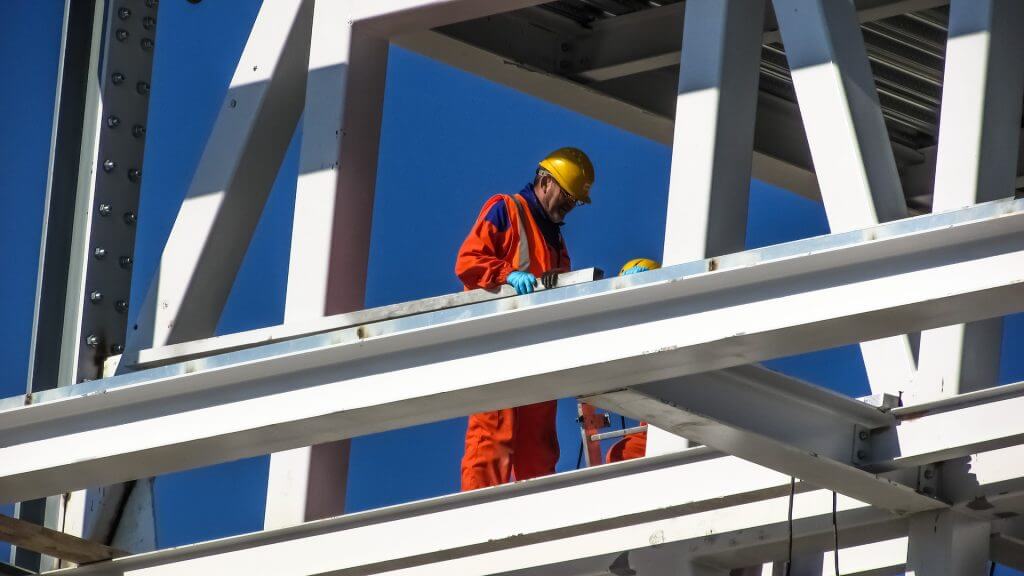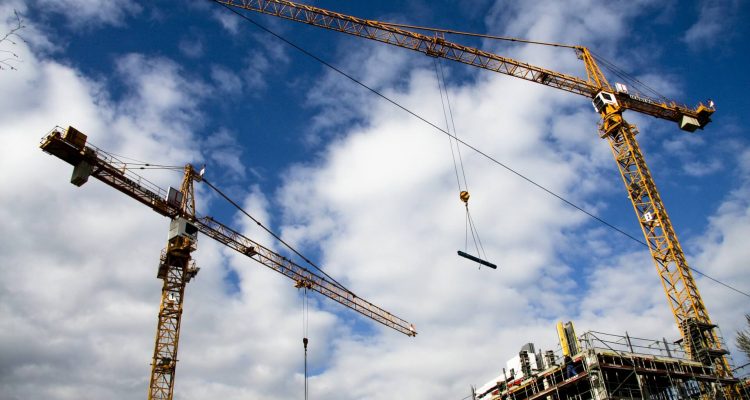Workplace safety is always important (especially when heavy machinery is involved), but crane safety is particularly crucial due to the serious risks associated with cranes.
Cranes are used in a range of industries and because of the risk that comes with crane operation, there are a number of regulations and safety guidelines which all industries must adhere to.
WHAT IS BS 7121?
The British Standard Code of Practice for the Safe Use of Cranes (also known as BS 7121) was created in conjunction with the Health and Safety Executive (HSE).
BS 7121 provides recommendations for the safe use of cranes within a work environment and is widely recognised as best practice in any industry. HSE recommends the use of BS7121 to anyone who is planning and carrying out lifting operations with the use of cranes in the UK.
This code of practice gives guidance on how to comply with Lifting Operations and Lifting Equipment Regulations 1998 (we’ll get to that bit in a minute) and the Provision and Use of Working Equipment Regulations 1998.
For example, BS 7121 provides information on safe systems of work selection, safely erecting and dismantling cranes, maintaining cranes, crane safety inspections and other requirements relating to crane safety.

Here at Altida, we undergo rigorous onsite audits by an external auditor to ensure that we are complying with the British Standard Code of Practice for the Safe Use of Cranes.
We pride ourselves on being able to demonstrate the skills and knowledge required to maintain, inspect, and test all of our mobile cranes range.
WHAT IS CPCS AND HOW DOES IT RELATE TO CRANE SAFETY?
The Construction Plant Competence Scheme (CPCS) was launched in 2003 with the intention of improving the skills of employees working within the plant sector of the Construction and similar industries.
The popular card scheme was launched at the request of employers as a way to help them comply with the regulations and requirements of plant safety, including crane safety. The CPCS card is the most widely recognised and preferred card to comply with codes of practice and is now used by more than 300,000 people across the UK.
The CPCS Scheme is regularly reviewed and altered based on a variety of factors including industry feedback, technology advances and new plant types.
If you are working within the construction industry or an industry in which you will be required to operate plant machinery including cranes; you will likely need a CPCS card. Or, if you are looking to hire a crane for your lifting needs, ensure that the company you are hiring from are certified by the CPCS.
At Altida, we understand the importance of crane safety, which is why all our crane drivers and operators have demonstrated their site competency and carry a CPCS card.

WHAT IS NPORS AND HOW DOES IT RELATE TO CRANE SAFETY?
The National Plant Operators Registration Scheme is recognised by the HSE and is one of the UK’s leading Accreditation and Registration Bodies. NPORS offers employers the opportunity to have their staff trained at their site using their own plant and machinery.
This qualification allows our staff at Altida to test, examine and certify the competency of our crane driver and operators. You can always be confident that our crane drivers and operators are competent and safe.
LIFTING OPERATIONS AND LIFTING EQUIPMENT REGULATIONS 1998
The Lifting Operations and Lifting Equipment Regulations 1998 is an approved code of practice and guidance developed for the safe use of lifting equipment including cranes.
The regulations outlined in this code of practice should be adhered to by anyone working work with lifting equipment at work as well as the employer and the competent person in the examination of lifting equipment.
To ensure crane safety, the Lifting Operations and Lifting Regulations 1998 applies to every sector that may be using lifting equipment. It covers all topics relating to lifting operations such as Positioning and Installing, Organisation of Lifting Operations and Thorough Examination and Inspection.
At Altida, we work with approved codes of practice including HSE Guidance to ensure best practice and crane safety.
WHAT IS CPA AND WHY DOES IT RELATE TO CRANE SAFETY?
As discussed in our previous blog, the Construction Plant Hire Association is the UK’s leading trade association for the plant hire sector. A CPA crane hire agreement specifies that the crane and crane operator is the responsibility to the customer when onsite.
To ensure crane safety, the Construction Plant Hire Association has outlined numerous requirements that crane hire companies and customers must adhere to.
For example, if you are looking to hire a crane and you opt for CPA Crane Hire, you must be able to provide an experienced and knowledgeable appointed person who is qualified in lifting. You must also provide insurance cover for loss or damage to the crane or goods that are being lifted whilst on site.
We want to make the process of crane hire simple, straightforward and most importantly, safe. At Altida, we provide ‘crane and driver’ CPA hire, which includes a certified crane and a qualified operator that will work the crane to the customer’s instructions.
TALK TO THE EXPERTS
Here at Altida, we are experts in everything to do with lifting and we believe the reputation of our industry, and yours, relies on safe, working equipment.
If you are looking to hire a crane, we would be happy to send our competent person to your site to do a free, no obligation site survey. We can also generate a thorough and detailed method statement for you. We will do all we can to ensure the safety of your lifting operations.
Get in touch with us at sales@altida.co.uk or call 01246 261915. Or, you can fill in the contact form here.
